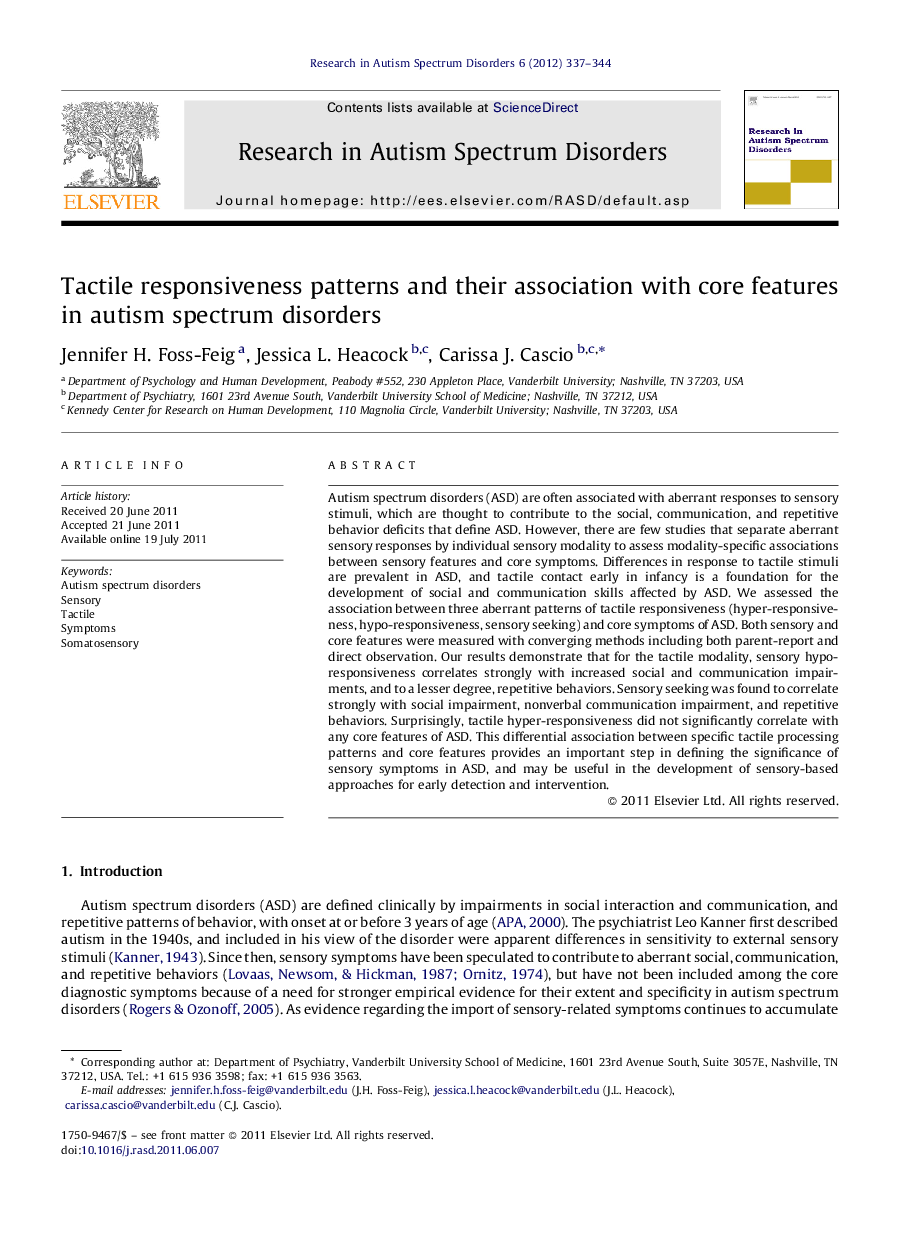| Article ID | Journal | Published Year | Pages | File Type |
|---|---|---|---|---|
| 370203 | Research in Autism Spectrum Disorders | 2012 | 8 Pages |
Autism spectrum disorders (ASD) are often associated with aberrant responses to sensory stimuli, which are thought to contribute to the social, communication, and repetitive behavior deficits that define ASD. However, there are few studies that separate aberrant sensory responses by individual sensory modality to assess modality-specific associations between sensory features and core symptoms. Differences in response to tactile stimuli are prevalent in ASD, and tactile contact early in infancy is a foundation for the development of social and communication skills affected by ASD. We assessed the association between three aberrant patterns of tactile responsiveness (hyper-responsiveness, hypo-responsiveness, sensory seeking) and core symptoms of ASD. Both sensory and core features were measured with converging methods including both parent-report and direct observation. Our results demonstrate that for the tactile modality, sensory hypo-responsiveness correlates strongly with increased social and communication impairments, and to a lesser degree, repetitive behaviors. Sensory seeking was found to correlate strongly with social impairment, nonverbal communication impairment, and repetitive behaviors. Surprisingly, tactile hyper-responsiveness did not significantly correlate with any core features of ASD. This differential association between specific tactile processing patterns and core features provides an important step in defining the significance of sensory symptoms in ASD, and may be useful in the development of sensory-based approaches for early detection and intervention.
► A substantial proportion of children with autism spectrum disorder have sensory processing atypicalities, including unusual responses to tactile stimuli. ► This study used both parent-report and direct-observation measures to evaluate tactile processing and core diagnostic symptoms. ► Increased tactile seeking and hypo-responsive behaviors were associated with more severe social impairment and increased restricted and repetitive behaviors. ► Tactile hyper-responsiveness, or defensiveness, was not found to relate to core social, communication, or behavioral symptoms in this sample. ► Our findings of strong relations between tactile and diagnostic symptoms underscore the need for additional research on sensory processing in ASD.
